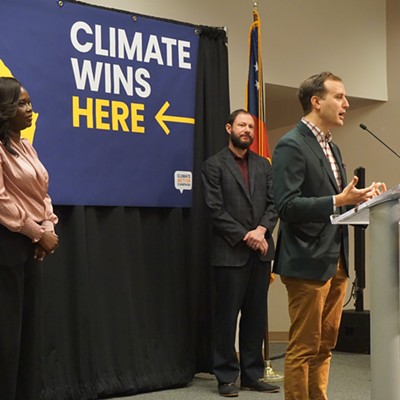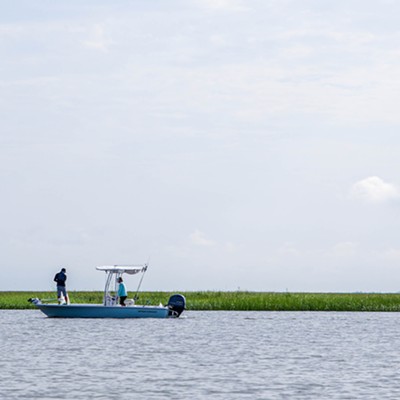The nominees for my favorite environmental slogans are: “Save the Earth, It’s the Only Planet with Chocolate,” “Biodiesel – No War Required” and “Prevent Plant Blindness.”
That last one might need to be explained, especially if you’re zoochauvinistic. Most people are.
Zoochauvinists are more aware of animals than plants to such a degree that they are virtually blind to the majority of plants in their daily landscapes.
This is not at all surprising since animals are responsive and mobile and many of them are very cuddly. No matter how much you talk to the shrub by your front door it cannot look adoringly at you or jump up and down if you ask, “Want to go for a ride?”
You can live a normal life while afflicted with plant blindness. However, as a philosophical bumper sticker posits, “Why be normal?”
To be able to say “I geek plants” gives you a readily available connection to the restorative powers of nature. It’s not every day that you can hike a stony path to a waterfall or be mesmerized by a soaring eagle, but every day it is possible to experience the beauty and boundless variety of plants.
Scientific studies show that plants have a positive effect on the human psyche, and you can easily prove this for yourself. An excellent and highly palatable way to gain a deeper appreciation of the local flora is to join a native plant group. You’ll meet some fine, friendly people, learn about the magnificent natural world that surrounds our manmade civilization, and become a protector of the environment.
Luckily for us, there’s a vibrant young organization in our area that can provide all this and more. Coastal WildScapes was created three years ago by a group of friends who share a love for the biodiversity of Georgia’s coastal region, especially its native plants. They believe when people’s eyes are opened to the intrinsic value of these indigenous species they’ll rally to protect them.
It’s understandable that people recovering from plant blindness may think, “Protect them? But there are a gazillion plants everywhere.” Ah, but many of them are not natives.
The plants that would grow naturally in various settings have been displaced by buildings and pavement, by domesticated plants and by invasive plants. There are over 16,000 native plant species in the United States and more than one third of them are at risk.
Each one of these plants is a significant part of nature’s masterful jigsaw puzzle. Its existence within a specific ecosystem provides food and shelter for specific insects and animals. When one piece of the puzzle is missing, the overall integrity suffers. We humans are still learning that messing with the puzzle is a bad idea.
Coastal WildScapes has been steadily gaining momentum, speaking to groups from Jacksonville to Savannah on topics such as gardening for biodiversity and planting for wildlife.
They have assisted with several landscaping projects including a native pollinator garden at Demere Park in Glynn County, a conservation and rain garden at a Glynn County elementary school and native landscaping for the City of Darien. There have been plant and butterfly walks and a water hyacinth removal outing.
Continuing their mission of education and inspiration, Coastal WildScapes is co–hosting a conference on Sept. 25th and 28th entitled Open the Garden Gate. Taking place in Richmond Hill, this event will focus on the importance of indigenous plants, preservation of their natural habitats and using these natives in landscaping.
The keynote speaker will be Doug Tallamy, author of Bringing Nature Home: How You Can Sustain Wildlife with Native Plants. The mix of presentations, panel discussions, plant and garden vendors and the opportunity to mingle with likeminded people promises to be invigorating.
The conference schedule, admission fees and other details can be found at coastalwildscapes.org. This website is worth a visit if for no other reason than to admire its loveliness and clarity of purpose. (But there’s a good chance that you’ll want to do more!)
The photo of a gulf fritillary butterfly floating over snake root and goldenrod blooms provides a glimpse of the magical world of native plants. We just need to open our eyes and our spirits will be uplifted.
I am reminded of a line from the ancient Hindu Atharva Veda, “Full of sweetness are the plants.” If that’s not on a bumper sticker it ought to be.



























